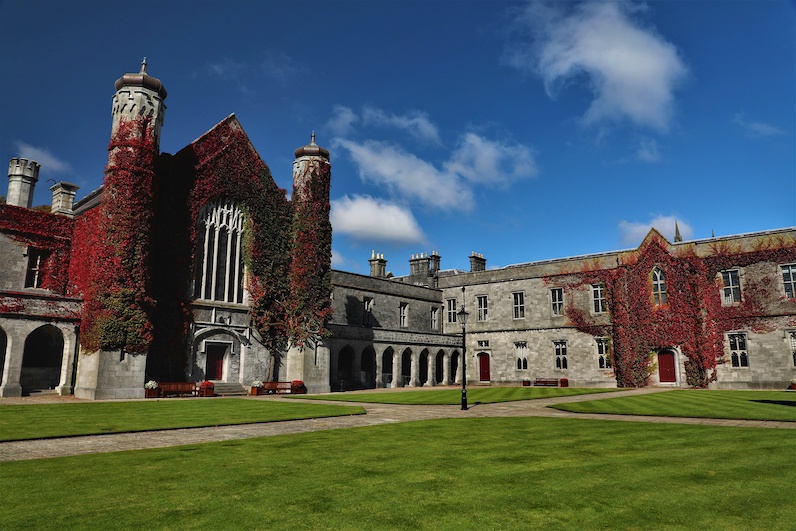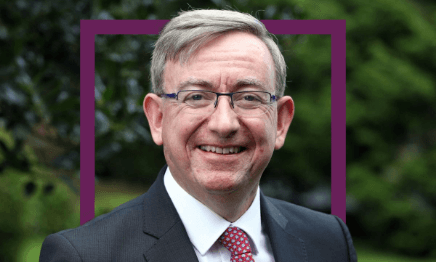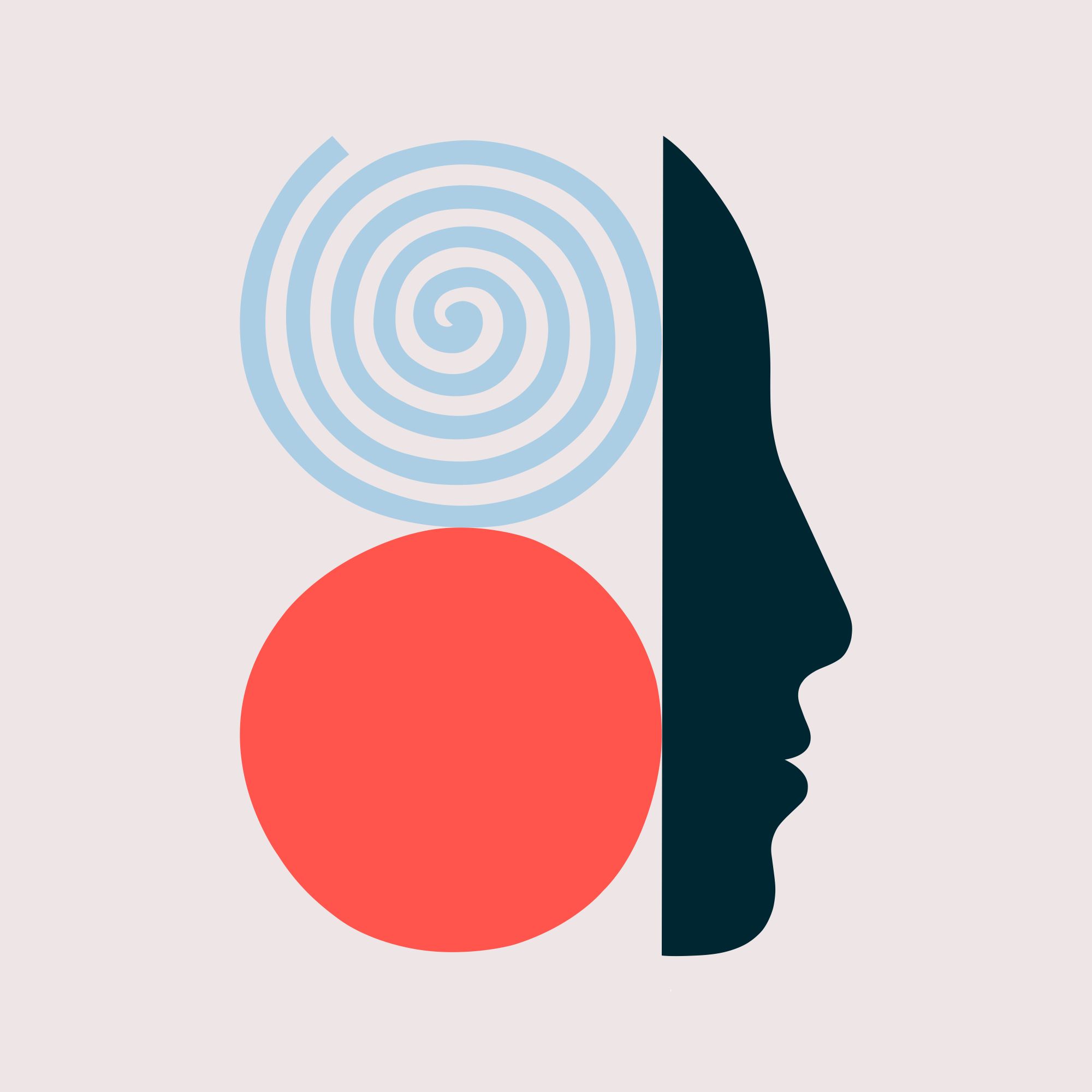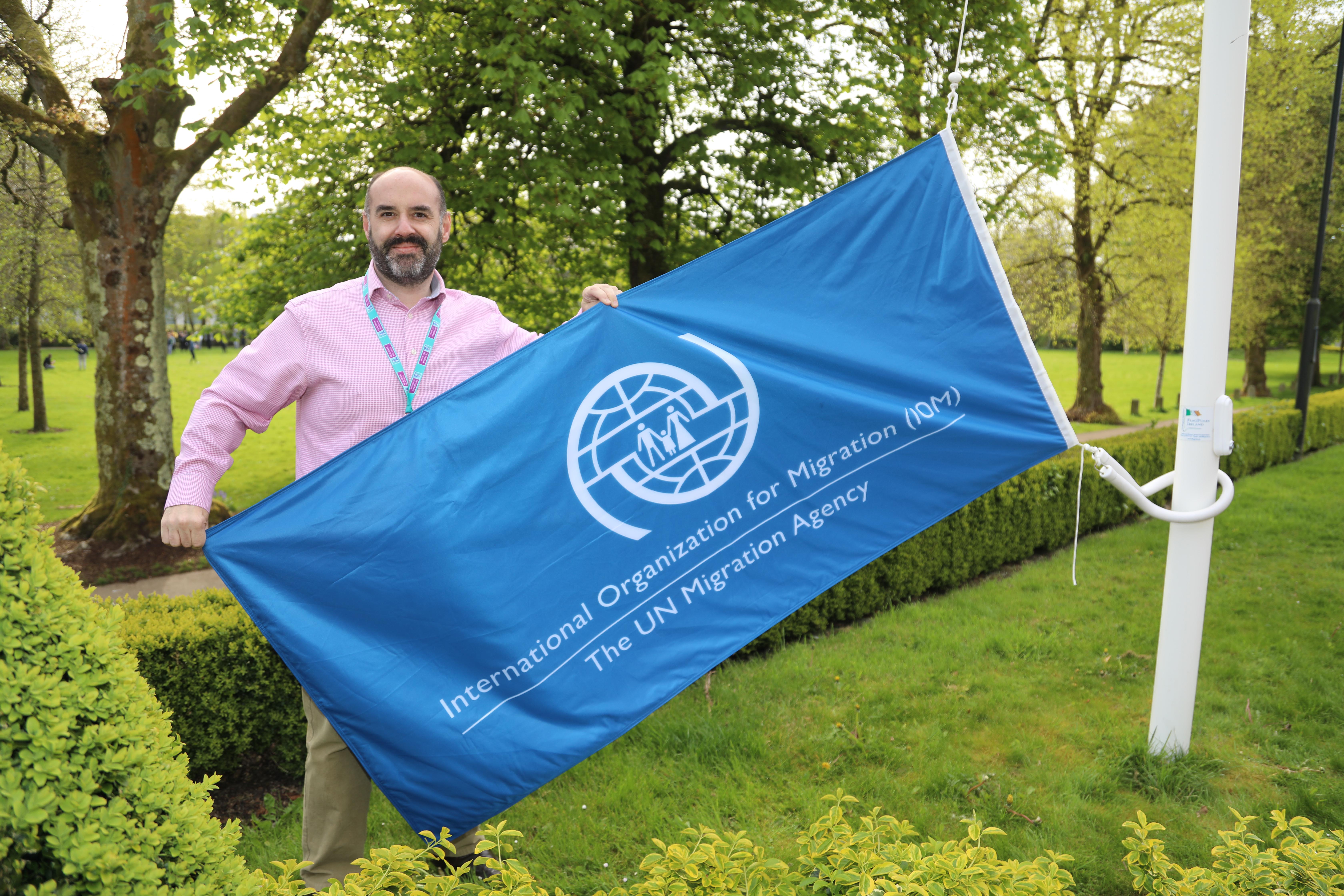

In 2018, Professor Ciarán Ó hÓgartaigh returned to his home city of Galway and his alma mater to take up the role of NUI Galway President. He has led the development of a values-based strategy for the university, shaped by four core values defined and debated by the community here: Respect, Openness, Sustainability and Excellence.
Guided by these values, NUI Galway has actively widened access and inclusion, expanded our horizons through ENLIGHT membership and the Global Galway Project, and led higher education innovation through our Universal Design for Learning, Active* Consent and Designing Futures programmes. Our impact has been acknowledged in recent months by the award of The Sunday Times University of the Year 2022, a Gold STARS Award for Sustainability from ASSHE and eight Athena SWAN School Bronze Awards.
Tom Felle: Knowing what we know about the evolution of technology and AI, what do you think is the future for higher education?
Professor Ciarán Ó hÓgartaigh: It goes back to a fundamental philosophy of education: there are implications for how we learn as well as what we learn. I think there will be significant implications for what we learn, but I’m not convinced that that will be as dramatic as what has been mooted. 5–10 years ago MOOCS (massive open online courses) where supposed to be the future of education, and that was supposed to be a threat to the traditional model… but that didn’t happen, the participation rates were high but the completion rates were low. I think that sense of belonging that people have when they come to campus is really important and I don’t think we will lose that. COVID showed us that when people were off-campus, there was a sense of a loss of community. How we recreate that in an online environment, this is challenging, but I think we’ll always harp back to the need for community and for contact.
Secondly, and more importantly I think, is what we learn, and I’m of the view that learning to learn is much more important. What you get out of university is the ability and the capacity to learn, to be curious, to use a framework to identify the evidence and then interrogate it, and to be adaptable. Seeing that as a quality coming out of university is as significant if not more significant than the technical knowledge. With technical knowledge, things will always change over time. I’m an accountant by background and accounting standards change over time. I also studied Management Decision System (MDS) and expert systems when I was a student here at NUI Galway. When I’m teaching, I want students to understand why accounting standards are the way they are and what are the choices that are available, and why are those choices made, sometimes political and sometimes based on empirical evidence. So, I think there may be a change to how we learn, but I think there will still be that need for contact.

TF: There’s always pressure to produce the ‘employable graduate’. How will universities in future resolve the conflict between strong employability skills and learning to learn? Or maybe it isn’t a conflict, they are both complementary?
CÓhÓ: In some ways it is a conflict. I think the interest in education in Ireland is interesting. There is always a drama every August and September about the Leaving Cert results and CAO. There is a real interest in, and concern for, education that comes out of the sense that education is the best way to progress your career and therefore your life more generally. So there is always going to be pressure to produce the employable graduate, but what makes a graduate employable will change over time. In the context of AI and the changing context of technology, the employment needs always change; how do universities adapt to that?
That brings us back to that learning to learn idea. What we are trying to develop in our graduates and in our research is that capacity to be agile, to respond to change over time, and to respond to challenges. I think COVID has been egregious and really difficult, and tragic for many people. But it also had a learning context in that I think that capacity to learn in uncertainty is an important attribute, and in many ways our students potentially learned more in the context of COVID than in other more certain contexts. There was a real challenge in dealing with ambiguity. It was very stressful, but I wonder in time whether that will be valuable learning for us. That sense of agility is what we are striving for. Is there sometimes tension there? Yes, but what we are passing on to our graduates or sustaining in our research is an ability to think in a particular frame. The employment context will always change so employability will always be a moving target.
We use the word skill a lot in the context of technology and AI. I much prefer the word capacity – skill is very reductive. I often think of the Heaney phrase, “We are here to develop your capacities, your destinies are your own”. So, that sense of opening up, of finding what you can do and what’s your place, and your contribution to society more broadly – capacity is a better way of imagining what a university education will be. Skills you can transfer in a lab, or in a manual, or in an algorithm, or an expert system. Capacity is much broader; capacities are about what it means to be a human being. That’s what universities will need to think about in the context of education in the future. How we teach, how we learn, how we do research, and that sense of community that we have on the campus is a very important part of what it is to be human, and that won’t ever be replaced by an algorithm. We need to think about what that will mean for how we go about our business, both how we engage with students and how we engage as an institution externally.
TF: AI is going to impact employment – some roles will no longer exist, and there are jobs of the future that do not yet exist. What does the university of the future look like in that context?
CÓhÓ: Adult and lifelong learning will become increasingly important. If your employment context is changing well then the university has a role in helping adaptation. We do that already with a lot of partners. Universities will become more diverse in our ability to attract all the talents, and I think that makes for a better university, not just across social classes but also across all the age groups. Universities will not be only for 18-year-olds as undergraduate or 20-something-year-olds as postgraduates, but for a much broader group of people, who will come back to us very often.
Physically, my sense is that the sense of community will always be there, people will want to meet so I think a campus will always be there, and the campus will always be an important heart of any university. What the campus looks like might be more of a mix, we may have more of a flipped classroom approach. AI might help in that – in allowing greater interactivity; in helping us find new ways to engage with students. I’m not a great believer that technology will replace what we do, but it can certainly help us do what we do better.
There are probably three roles for the university – one is in thought leadership and policy; the second is in democratising education; and the third is going back to learning to learn and being agile. We have a role in levelling up and levelling out, and in mediating the impact of those changes, certainly. Democratising education will be important and we will have a greater role in bringing people into the university that don’t normally come to a university setting – they should see this as their own, as their place. That then enables and empowers a much broader group to have that discussion, but then also to progress based on that discussion, and having that diverse debate in the classroom. Then, going back to that sense of agility – of building capacity, of learning to learn, and having a very strong research base that allows us to know what is happening in AI and more generally in other sectors, and to have the radar out.
TF: In the context of the future of technology and its impact on society, what do you think the future holds for the traditional Arts degree?
CÓhÓ: Firstly, Arts is probably the best place to learn citizenship, to learn to learn, so that agility and critical thinking capacity that Arts graduates develop is going to be a key attribute in the future. Secondly, very many Arts subjects have different dimensions to them, so they are not all the same and are constantly changing and being reinvented; that’s also going to be important for the future. I think it may well be a four year degree – and that movement between the workplace and the university might become more common. It may also well be a different group of people including a greater number of adult learners who will bring a richness of experiences into the classroom.
More broadly, traditionally in North America, business and other degrees are typically taken at graduate level. For their undergrad, students do an Arts degree. There are some examples of that in Ireland and internationally as well. There is capacity for the Arts degree to add to other degrees – not to be an add on. So why not have a Commerce degree that has a strand of Arts running through it? Or science students who do Philosophy as part of an ethics perspective? Why not have more of a melding of those transversive capacities we are developing in the Human Capital Initiative and in Designing Futures? This is particularly important for us.
I would add though that Arts has a lot to offer, not only in its own right, and sometimes I worry that if we say it should be part of something else, that then it is seen as a subset or subservient. If you think about why we exist, we exist as human beings, as people who think and are emotional and interact with each other, all of that comes out of an Arts perspective and that’s a much higher order of learning. So, it’s actually about valuing and validating and valorising what an Arts degree can provide, as opposed to diminishing it. I think there is a real opportunity for us here to have that discussion. If you think about learning in the University of the future in an AI context, then AI cannot exist separate from the human beings it is supposed to serve. All those questions around the use of artificial intelligence, the ethics of algorithms, and what it all means for human beings, can be found in an Arts context and in a social science context, and I think that enriches the experience for students.
TF: The defining issue for our future will be how we deal with the climate crisis. What do you think the role of the university is in responding to and in leading on that – and it isn’t just in the sciences.
CÓhÓ: We do really important research in the sciences in climate and sustainability but also from an engineering and technology perspective in designing better ways to live, and we need to maybe make that more visible. Secondly as an institution, one quarter of the population of Galway are students; we have 2,500 employees, we have a significant footprint in our campus and in our purchasing. So, as a campus we can make a difference but as a purchaser we can also make a difference. More broadly we can make a difference in leadership and on policy – the solutions are not entirely scientific.
Behavioural issues will be important and there is a real role for us in teaching around these ideas, but also in behaving and in thinking about how behaviour can be encouraged in the climate context. Our students will push us on it – I think we are doing good work but we could do better. We need to make a difference – and an important part of that will be in being radical. Debate can be noisy and sometimes be uncomfortable, but this is an important part of what it will be to be a NUI Galway graduate.
CÓhÓ: So ceapaim go bhfuil sé an-thábhachtach ó thaobh an oideachais de freisin agus conas mar a bheidh an Ollscoil ag athrú agus cuid de sin ná go mbeidh an teicneolaíocht ag athrú conas mar a bheidh muidne sa saol. Ach caithfidh muidne freisin smaoineamh ansin cad é an coincheap atá againn mar Ollscoil amach anseo, agus cuid an-thábhachtach de sin ná conas mar atá muid mar dhaoine daonna, conas atá an daonnacht ionainn. Agus tá ról an-thábhachtach ag Ollscoil ar nós an Ollscoil anseo i nGaillimh, sa choincheap sin, conas mar atá muid ábalta sa saol, ag athrú leis an saol agus conas mar atá muid ag athrú an saol freisin?
Tá sé sin an-thábhachtach ceapaim ó thaobh an teicneolaíochta de agus athraithe sa teicneolaíocht mar go minic beidh daoine ag lorg post as a bheith san ollscoil agus beidh na postanna sin ag athrú agus caithfidh muid a bheith in ann athrú leo, ní amháin nuair atá muid ar ollscoil ach nuair a fhágann muid. Mar sin mar chéimithe, caithfidh muid a bheith ag athrú i gconaí agus muid amuigh ansin sa saol agus an athrú sin romhainn. Is cuimhin liom i gconaí… tá mé fós ag lorg an dáin seo … is cuimhin liom nuair a bhí mé fós ar scoil agus mé ag fágáil Rang a 6, thaispeáin an múinteoir dán dúinn as Gaeilge agus an dán a bhí ann ná go raibh an múinteoir ag samhlú na mic léinn mar bhád faoi sheoil agus go raibh sé brónach go raibh an bád ag fágáil an chalafoirt agus ag dul amach sa domhan mór agus ar an bhfarraige mhór ach ag an am céanna bhí sé sásta go raibh na huirlisí ag an mbád, go raibh an bád réidh le dul agus go raibh an bád ullmhaithe aige don domhan mór freisin.
Tá sé sin tábhachtach ó thaobh céimithe de, mar tá súil againn go bhfuil sibh socraithe don domhan mhór nuair a théann sibh amach ann ach freisin, bhí brón orainn nuair a d’fhág sibh an áit seo agus táimid ag súil go mbeidh sibh linn I gcónaí. Ní amháin agus meoin agaibh gur céimithe de chuid Ollscoil na hÉireann Gaillimh sibh ach go dtiocfaidh sibh arais chugainn freisin agus go mbeidh sibh linn sa seomra ranga, sa taighde, ar an gcampas agus go mbeidh sibh linn san aistear nua seo agus an bád nua seo ag dul chun farraige, agus muid ag súil leis an Ollscoil mar ollscoil difiriúil agus éagsúil amach anseo.

Profiles

Tom Felle, Associate Professor and Head, Discipline of Journalism and Communication at NUI Galway, is the leading head of a global foundational course to challenge fake news on migration. A former career journalist and foreign correspondent, he started his career with the Connacht Tribune and worked with the Irish Independent in Ireland for six years. He was Deputy Editor of the Irish Echo in Sydney from 2001 to 2004, and from 2006-2008 he served as Bureau Chief of the Leb News Agency in Beirut, Lebanon. He has worked in higher education since 2009.
His research interests include digital news, verification, data-driven journalism, so-called "fake news" and dis-information, and trust, transparency and accountability in democracy. He sat on an expert committee that advised the Irish government on FOI in 2013, and has given testimony in the House of Commons in the UK on the importance of FOI for a strong democracy. He has published various book chapters, academic articles, has edited three books and is a published author.